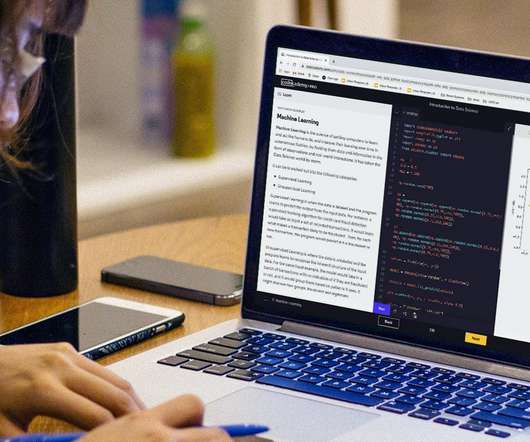Codecademy, an Early (and Now Profitable) Pioneer of Coding Education, Raises $40M in New Funding
Edsurge
FEBRUARY 23, 2021
Founded in 2011, the New York-based company has built a hugely popular training platform that has helped millions of students learn to code over the last decade. Investors from these previous rounds include Flybridge Capital Partners, Index Ventures, Alexis Ohanian and Sir Richard Branson’s Virgin Group. “We Chegg went public in 2013.















Let's personalize your content